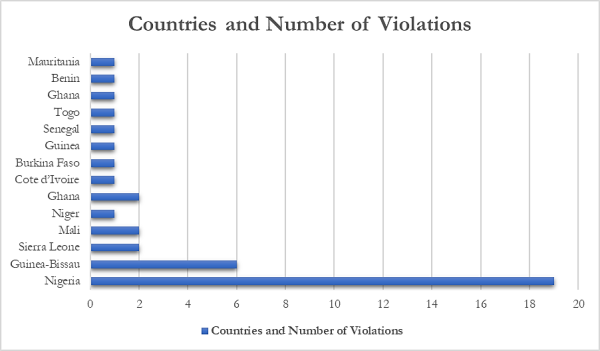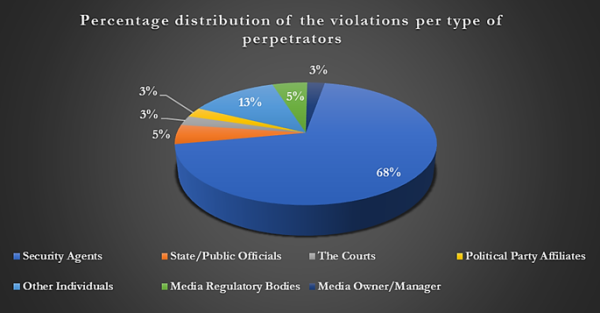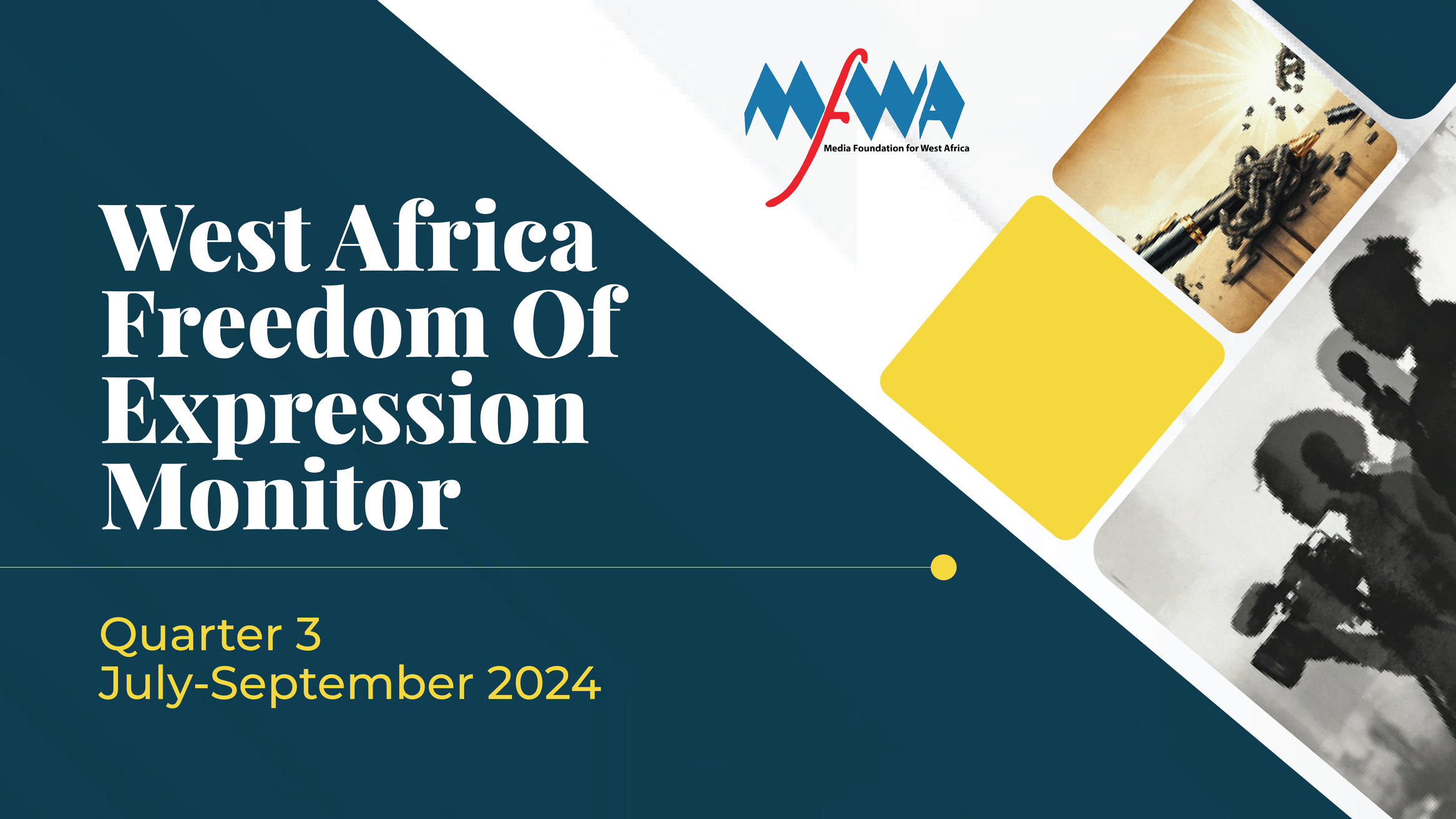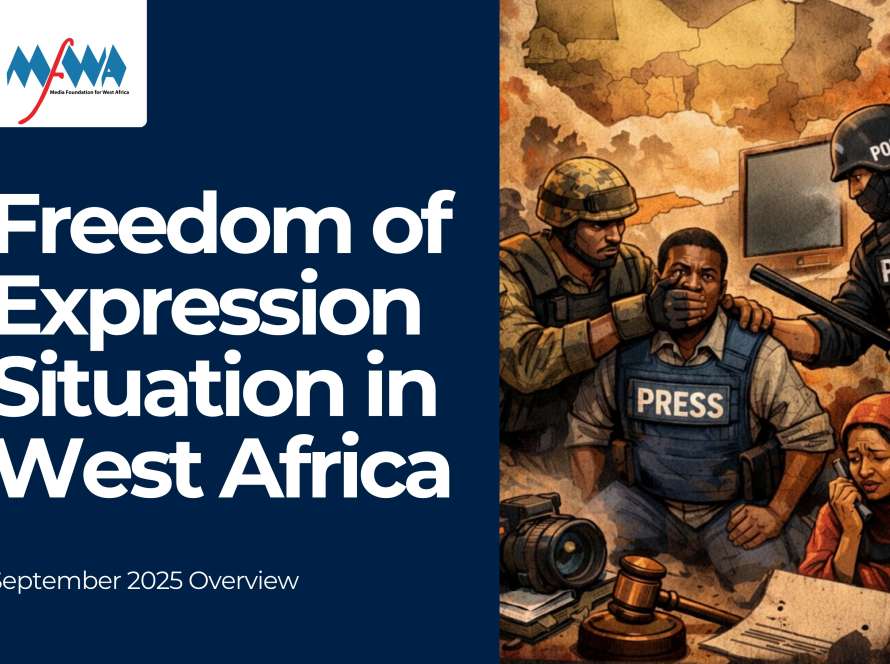Seventeen (17) #EndHunger protesters were killed in Nigeria while the Ghana police arrested 54 #Endgalamsey (illegal mining) demonstrators in Accra, making the third quarter of 2024 particularly repressive for demonstrators.
Of the 54 Ghanaian protesters detained, 39 were denied bail by the Accra Circuit Court in what was seen as the weaponisation of the judicial system against dissent. The 17 people who died during the #EndHunger protests in Nigeria and their families are yet to receive any form of justice. The repression of peaceful protests in these two countries mirrors a broader trend of using state force to silence dissent.
In another disturbing trend, two French media houses were shut down in Mali, further shrinking the space for independent journalism in the troubled Sahel country. In Guinea, major media groups remained shut for over 100 days, leaving thousands unemployed and millions without access to independent news sources.
Forty (40) violations were recorded across 14 countries in West Africa during the third quarter of 2024 (July-September 2024), 20 of the being arrests/detentions and 7 being physical attacks.
Nigeria accounted for nearly half (19) of the total violations recorded, followed by Guinea-Bissau (6 cases). The high number of violations in these country in the tally is largely due to government crackdowns on protests and dissenting voices.

As protesters grappled with police hostility, journalists also faced increasing attacks from both state and non-state actors. In Togo, at least six journalists were violently attacked by unidentified individuals while covering an opposition event in Lomé.
The findings reveal that security agents, including the police and military, are overwhelmingly responsible for FOE violations. Out of the 40 recorded cases, they were behind 27 violations, which is more than two-thirds of the total. Media regulatory bodies, state/public officials, courts, political party affiliates, media owners, and individuals were collectively responsible for the remaining 11 cases.

Most of the FOE violations targeted journalists and media workers. Specifically, 29 of the 40 violations affected journalists, impacting at least 64 individuals. Seven violations targeted ordinary citizens, mainly protesters. Two cases each were directed at media organizations and activists.
One of the most concerning aspects of this report is the near-total impunity for FOE violations. Out of the 40 cases recorded, only one saw any form of redress, which was the restoration of internet access in Mauritania.
The quarter also saw significant developments in media regulation and government-media relations. Benin’s media ethics body (ODEM) warned against a rise in ethnocentric and inflammatory reporting. Senegalese media staged a blackout on August 13, 2024, in protest of government-imposed restrictions, demonstrating collective resistance against censorship.
This quarter’s freedom of expression monitor also features other important freedom of expression and digital rights developments in the region, including recommendations to key stakeholders.
Access the full report here.






